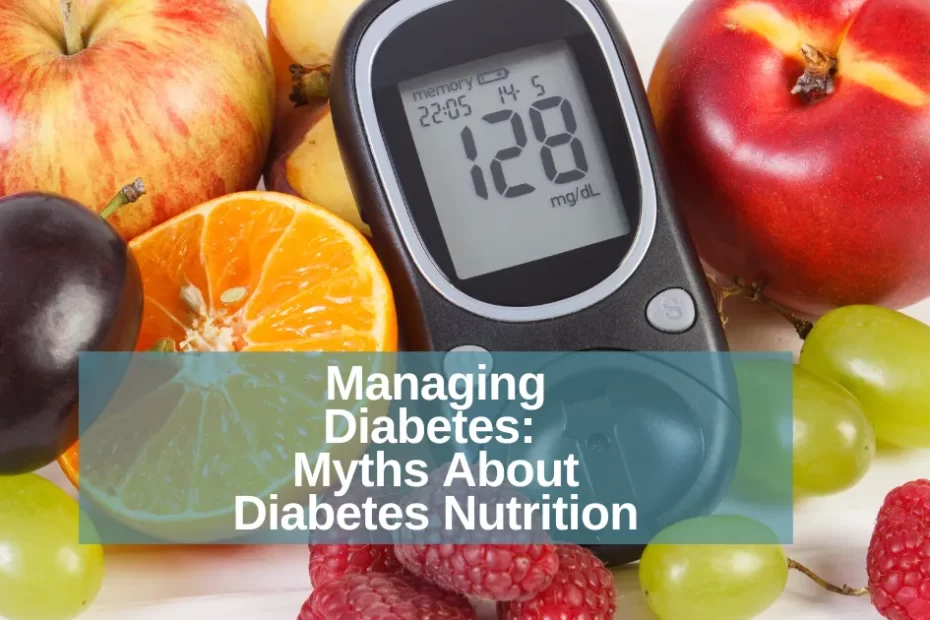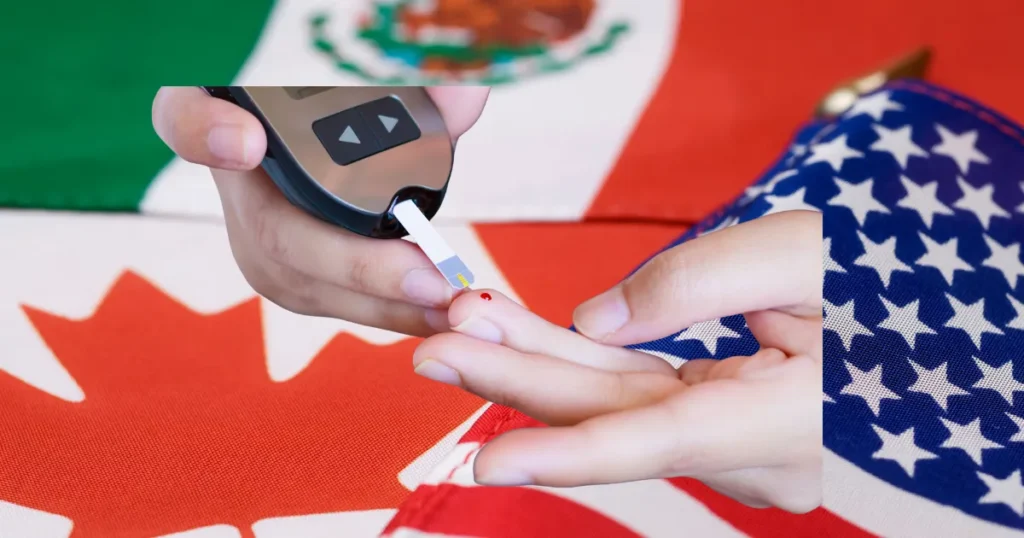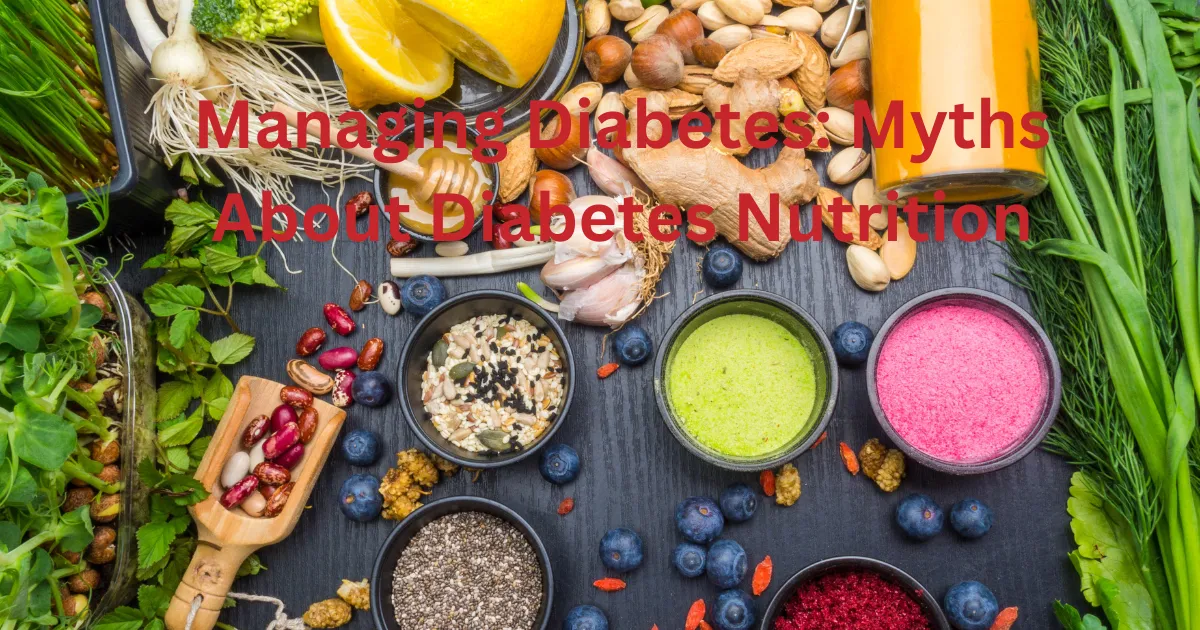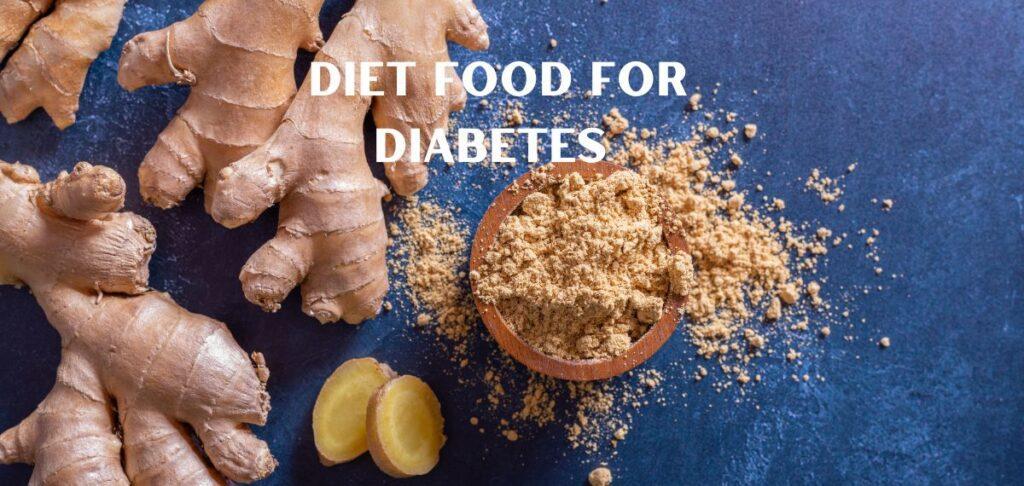Diabetes Myths And Facts: With so much misinformation online, it’s no wonder many people fall for dangerous diabetes myths. Believing the wrong thing can hurt your health—and your confidence. One of the most common myths is that eating sugar causes diabetes. While excessive sugar intake can contribute to weight gain and insulin resistance, diabetes is much more complex. Genetics, lifestyle, and hormonal imbalances also play key roles.
-
📊 Diabetes in North America: Key Statistics (2024)
- 🧬 Types of Diabetes
- 💸 Economic Impact
- 📈 Projected Growth
- 🔗 Sources
-
Diabetes Nutrition Secrets: Uncover the Truth - Diabetes Myths And Facts
- Myth 1 - Nutrition for Diabetes: All Carbs Are Bad
- Myth 2: Artificial Sweeteners Are a Safe Alternative
- Myth 3: People with Diabetes Should Avoid Fruit
- Myth 4 - Nutrition for Diabetes: You Have to Give Up All Your Favorite Foods
- Myth 5: Eating Late at Night Causes Weight Gain
- Myth 6: Elderberry Supplements For Managing Diabetes
- Myth 7: Effects Of Ginger On Insulin Sensitivity
- Myth 8: Can turmeric help with diabetes management?
- Myth 9 - Diabetes Myths And Facts - What are the five worst foods for diabetics?
- Top 5 foods to avoid if you have diabetes (Diabetes Myths And Facts):
- Managing Diabetes & Nutrition for Diabetes
- Source & Credits:
Another harmful myth? People with diabetes should limit their intake of carbs and fruit. In reality, managing carbohydrates—not eliminating them—is the key to success. Whole fruits, for example, contain fiber and nutrients that help regulate blood sugar levels.
There’s also a widespread misconception that needing insulin means you’ve failed. That couldn’t be further from the truth. Insulin is a life-saving tool that helps many people with diabetes live long, healthy lives.
It’s time to swap fear for facts. Learning the truth about diabetes myths and facts empowers you to take control of your health through knowledge, not confusion. Whether you’re newly diagnosed or supporting someone you love, accurate information is your greatest ally.
So the next time someone says, “You can’t eat that—you have diabetes,” share the truth. Because managing diabetes starts with busting the myths.
📊 Diabetes in North America: Key Statistics (2024)
- 📌 Total Population with Diabetes (Ages 20–79): 51 million people
- 🇺🇸 United States: 38.4 million people (11.6% of the population)
- 🇨🇦 Canada: 4.2 million people (10.7% of the population)
- 🇲🇽 Mexico: 8.4 million people (10.3% of the population)
🧬 Types of Diabetes
- Type 2 Diabetes: ~90–95% of all diabetes cases
- Type 1 Diabetes: ~5–10% of all diabetes cases
- Undiagnosed Diabetes: ~20% of people with diabetes are unaware of their condition
💸 Economic Impact
- Total cost of diabetes in the U.S. (2023): $413 billion (including direct medical costs and lost productivity)
- Average annual medical expenses for a person with diabetes: 2.3x higher than those without diabetes
📈 Projected Growth
- By 2045, an Estimated 63 million people in North America will be living with diabetes
- Increase from 2021–2045: 24% projected growth in diabetes prevalence
🔗 Sources
- Centers for Disease Control and Prevention (CDC)
- International Diabetes Federation (IDF) – 2023 Diabetes Atlas
- Diabetes Canada – 2023 Diabetes Statistics Report
Diabetes Nutrition Secrets: Uncover the Truth – Diabetes Myths And Facts
You’ve probably heard countless claims about what you should and shouldn’t eat if you have diabetes. But are these so-called “facts” actually actual? Let’s debunk some of the most persistent myths about diabetes diets.
Myth 1 – Nutrition for Diabetes: All Carbs Are Bad
One of the most common misconceptions about diabetes is that carbohydrates are the enemy. While it’s true that managing carb intake is essential, not all carbs are created equal. Complex carbs in whole grains, fruits, and vegetables provide vital nutrients and fiber.
Myth 2: Artificial Sweeteners Are a Safe Alternative
Many people with diabetes turn to artificial sweeteners as a guilt-free option. However, some studies suggest these sweeteners may impact blood sugar levels and gut bacteria. Consuming them in moderation is essential, and natural sweeteners like stevia should be opted for whenever possible.
Myth 3: People with Diabetes Should Avoid Fruit
Fruits are packed with vitamins, minerals, and fiber, making them an excellent choice for people with diabetes. However, the glycemic index measures how quickly blood sugar levels rise after eating a particular food. Enjoy fruits as part of a balanced diet, and be mindful of portion sizes.
Myth 4 – Nutrition for Diabetes: You Have to Give Up All Your Favorite Foods
Living with diabetes doesn’t mean sacrificing all the foods you love. With careful planning and portion control, you can still enjoy your favorite treats in moderation. The key is finding healthy alternatives and balancing your meals.
Myth 5: Eating Late at Night Causes Weight Gain
The timing of your meals doesn’t directly impact weight gain. What matters is the overall calorie intake for the day. However, eating late at night might disrupt your sleep patterns, indirectly affecting weight management.
Myth 6: Elderberry Supplements For Managing Diabetes
Elderberries can be consumed in moderation by diabetics, but it’s essential to monitor blood sugar levels. Elderberries contain polyphenols, which may cause patients with diabetes to experience hypoglycemia or low blood sugar.
Elderberry supplements may be unsafe for people who use insulin, oral medications, or both. Although elderberry may help prevent illness, it can also cause side effects. It may shorten the duration of colds and flu, but it can also lead to gastrointestinal upset and liver damage.
Myth 7: Effects Of Ginger On Insulin Sensitivity
Ginger can help regulate blood sugar levels and has anti-inflammatory properties. If you’re diabetic, ginger might be able to help prevent complications from diabetes by reducing insulin resistance. Ginger contains all the natural chemicals in their original form. When you grind fresh ginger, you lose some healing properties.
However, if you use fresh ginger instead of powdered ginger, you get most of the benefits without dealing with the hassle of chopping off pieces of ginger.
Myth 8: Can turmeric help with diabetes management?
Turmeric’s active compound, curcumin, may have anti-diabetic effects and help regulate blood sugar levels. Turmeric contains approximately 2% Oxalic acid, which, at high doses, may contribute to the formation of kidney stones.
Eating turmeric made from wheat, barley, or rye flour will cause adverse symptoms in people with Gluten Intolerance or Celiac Disease.
Turmeric usually doesn’t cause any severe side effects. However, some people may experience minor side effects such as stomach upsets, nausea, dizziness, or diarrhea. These side effects are more likely to occur at high doses.
Myth 9 – Diabetes Myths And Facts – What are the five worst foods for diabetics?
The five worst foods for diabetics are those that can cause rapid spikes in blood sugar levels and are generally low in nutritional value.
Top 5 foods to avoid if you have diabetes (Diabetes Myths And Facts):
- Sugary Beverages: Sugary drinks, such as soda, fruit juices, energy drinks, and sweetened iced teas, are often loaded with high-fructose corn syrup and can cause a significant and rapid increase in blood sugar levels. They are essentially empty calories with little to no nutritional benefit.
- Processed and Refined Grains: Foods made from refined grains, such as white bread, white rice, and many breakfast cereals, have had their fiber and nutrients stripped away during processing. Their high glycemic index can lead to rapid spikes in blood sugar.
- Candy and Sweets: Candy, cookies, cakes, and other sweets are high in sugar and carbohydrates, making them a poor choice for people with diabetes. They can lead to unhealthy fluctuations in blood sugar levels.
- Fried and Fatty Foods: Deep-fried foods like French fries, fried chicken, and doughnuts are not only high in unhealthy fats but also absorb a significant amount of oil during frying, making them calorie-dense. They can contribute to weight gain and insulin resistance.
- High-Sugar Breakfast Cereals: Many breakfast cereals marketed as healthy options are high in added sugars. These cereals can cause a rapid spike in blood sugar levels, especially when eaten without a source of protein or fiber.
Managing Diabetes & Nutrition for Diabetes
Nutrition for diabetes: People with type 2 diabetes must maintain a low carbohydrate and sugar intake.
Counting carbohydrates and using the plate method are two methods that can be used to plan meals.
A meal plan guides when, what, and how much to eat to meet your nutritional needs while maintaining healthy eating habits. A good meal plan considers your goals, tastes, lifestyle, and any medications you’re taking.
A good meal plan should include:
- Include more nonstarch veggies like broccoli, greens, and green beans.
- You should limit yourself to foods without added sugar and refined grains, such as white bread, rice, pasta, etc., with less than 2 grams of fiber per serving.
- Instead of highly processed foods, focus on whole foods as much as possible.
Carbs in the food you eat cause your blood sugar level to rise. How fast carbs raise blood sugar depends on what they’re made of and what else you eat with them. For example, drinking apple juice raises blood sugar faster (and insulin) than eating an apple. Eating carbs with foods high in protein, fat, or fiber slows down how quickly your glucose level rises.
Nutrition for diabetes: Eating regularly and balancing your meals is crucial so they don’t cause highs or lows in your blood sugar level. Counting carbs and measuring them on a plate are two ways to help keep track of the number of carbs in your meals.

BMI Index Calculator

Basal Metabolic Rate

Tdee Calculator
Share this:
- Click to share on Facebook (Opens in new window) Facebook
- Click to share on Pinterest (Opens in new window) Pinterest
- Click to share on LinkedIn (Opens in new window) LinkedIn
- Click to share on X (Opens in new window) X
- Click to share on Tumblr (Opens in new window) Tumblr
- Click to share on Bluesky (Opens in new window) Bluesky




Health isn’t one-size-fits-all. It’s about finding what works best for your body and lifestyle. Experiment with foods, stay active, and listen to your body’s needs
Balanced diet is key! Opt for whole grains, lean proteins, and lots of fruits & veggies.
Are You Falling for These Diabetes Diet Lies? I hope you don’t
Great article. Pin it, share it, and let the world know that it’s time to rethink seafood and diabetes!